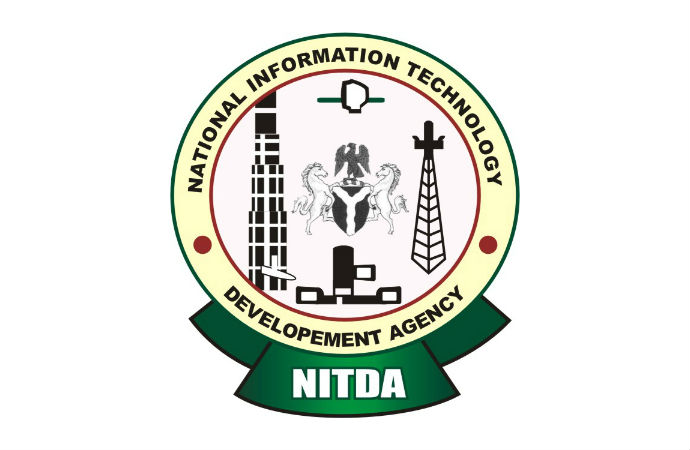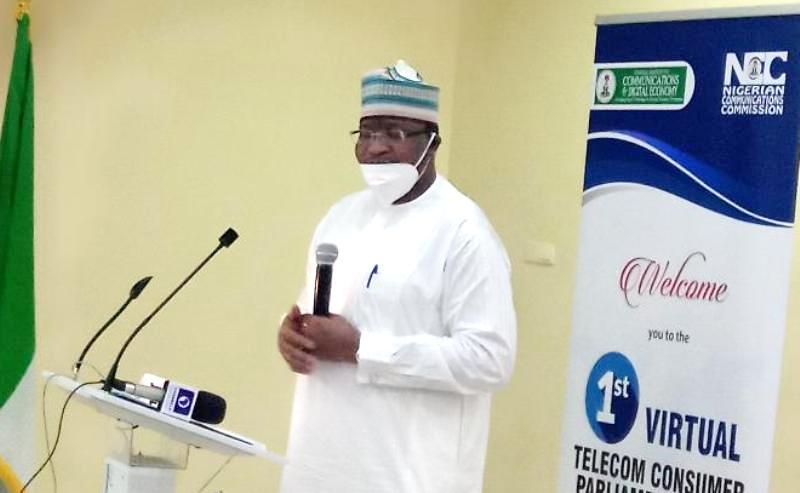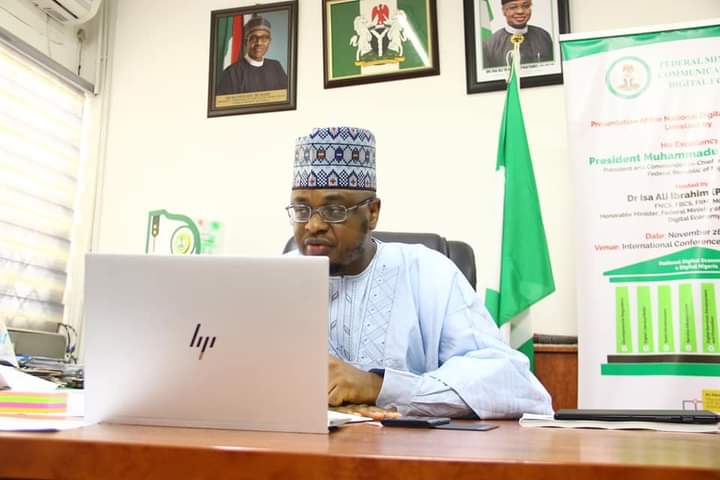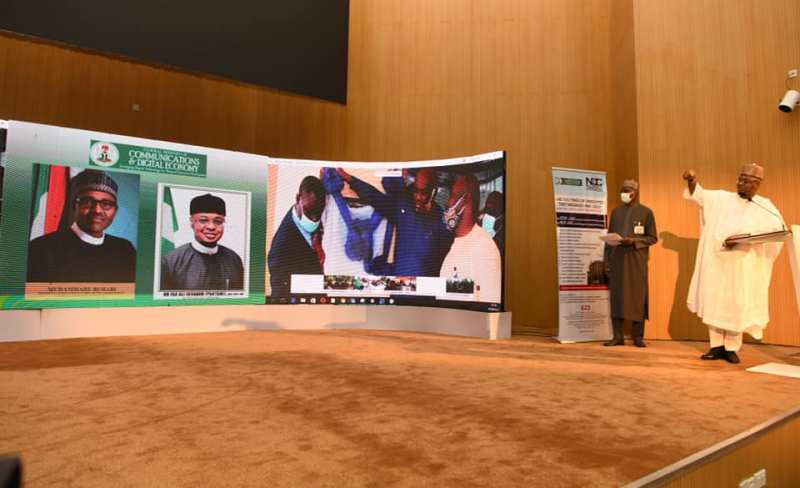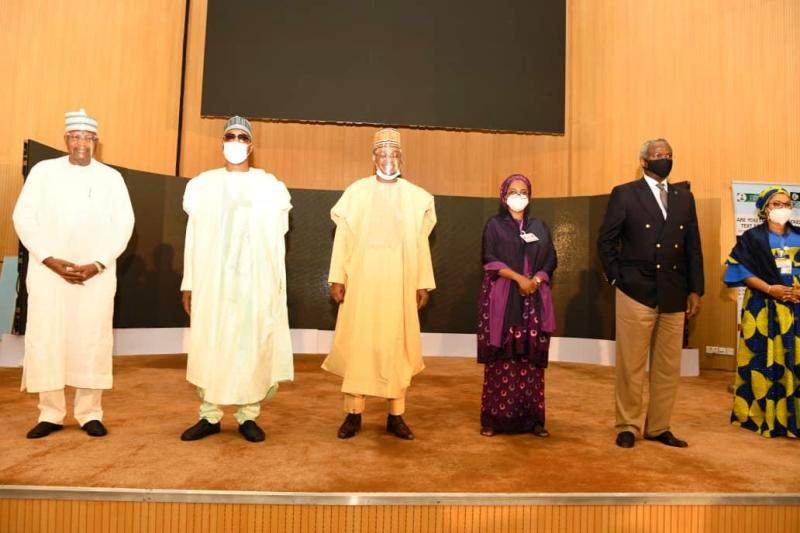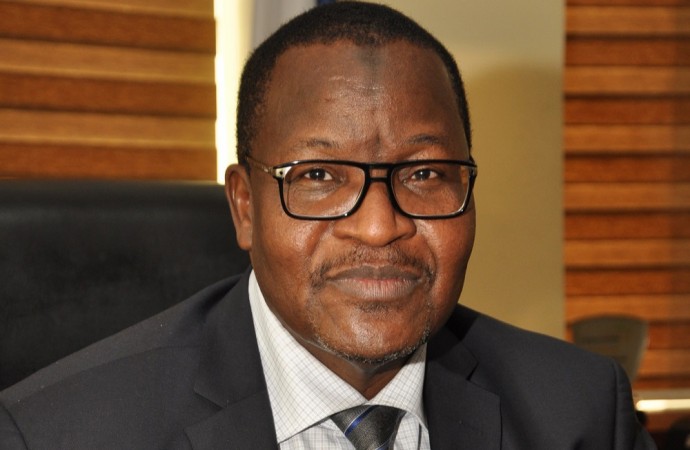The Federal Government on Thursday inaugurated 129 Ministries, Department and Agencies (MDAs), to be part of the first phase of Federal Public Institutions (FPIs), Digital Transformation Technical Working Groups (DT-TWGs).
The inauguration was organised by the National Information Technology Development Agency (NITDA), and undertaken by Dr Isa Pantami, Minister of Communications and Digital Economy in Abuja.
The group’s inauguration was to ensure that MDAs were part of the Federal Government’s agenda toward developing a digital economy.
The inauguration held concurrently with the launching of the Government-to-Government Nigeria Government Enterprise Architecture (NGEA) portal, www.ngea.gov.ng which would enable the group to work in synergy.
Pantami said that digital economy was transforming the way the public sector operated and delivered services to customers, hence the need for MDAs to key in.
“The digital economy requires among other things adaptive policies, strategies, regulations, standardised infrastructure, globally-competitive workforce, carefully orchestrated and coordinated digital governance structure.
“Without appropriate digital governance, it becomes difficult for digital investments and implementation to meet strategic objectives and expectations,” Pantami said.
According to the minister, digital governance is key to managing digital transformation successfully and the failure of IT projects is also being experienced by a number of FPIs.
He blamed lack of an appropriate digital governance structure either at the individual organisation level or on the government’s end for failures of IT projects.
Pantami also said that the group’s inauguration was heeding to President Muhammadu Buhari’s directives at the opening ceremony of e-Nigeria conference of 2019.
“The president ordered that DT-TWGs be established in Federal Public Institutions (FPIs) as e-Government champions and be part of the digital governance structure for the implementation of Nigeria e-Government Master Plan (NeGMP) and National Digital Economy Policy and Strategy (NDEPS).
“The NDEPS was unveiled and launched by the President on the same day with developmental regulation, digital literacy and skills, solid Infrastructure and service infrastructure as the pillars.
“The other pillars are soft Infrastructure, Digital Services Development and Promotion, Digital Society and Emerging Technologies and Indigenous Content Promotion and Adoption.
“The DT-TWG will be an instrument to the implementation of four pillars in NDEPS,” the minister said.
Pantami said that the capacities of the DT-TWGs members needed to be developed in transformation management, innovation and technical capabilities to enable them to perform the task ahead.
He urged NITDA to engage the members and their institutions for capacity building and also directed the members to engage their respective staff members for implementation.
Mr Kashifu Inuwa, Director-General of NITDA, said that digital transformation initiatives might fail if there was lack of strategic architecture.
Inuwa said the DT-TWGs was being put in place to ensure FPIs were properly guided against pitfalls while implementing digital initiatives, government businesses and digital technologies were properly aligned for the acceleration of digital transformation.
He added that the Nigeria e-Government Interoperability Framework (Ne-GIF) and NGEA formed the foundation for taking government-wide IT deployment from silo-based to an integrated whole-of-government approach.
“The current silo situation is as a result of the fact that each public institution is good at deploying IT systems for each of its strategic initiative and specific service.
“Institutions do not consider national IT architecture and interoperability framework that follows and ensures a pre-determined process, operating model for IT systems deployment across public Institutions.
“The seven layers of NGEA which are Business, Service, Data, Application, IT Infrastructure, Security and Performance are centred around people and processes.
“Each layer has high-level expectations for FPIs and as well specifies best practices, standards, tools, reference models and recommendations that will help achieve the value propositions and citizens’ expectations for government digital services,” Inuwa said.
He stated that NITDA had established NGEA/Ne-GIF National Implementation Committee comprising of about 40 critical FPIs representatives and IT industry players to govern and advise on government-wide digitisation of processes,functions.
According to him, there is provision of personalised advice to FPIs on their current state of IT deployment and recommendations on business process and IT deployment optimisation, among other intervention initiatives.
He reiterated that achieving whole-of-Government, calls for a shift in the culture of the public service, the mindset of the public officers and the way e-Government and IT systems were being deployed.
“The deployment should automatically enable seamless interoperability and exchange of data across Public Institutions.”
The director-general said the group was saddled with the responsibilities of advocating for digital economy, transformation related activities, guiding automation and digitisation of government business processes, among other functions.
Inuwa said the DT-TWG comprised of five members cutting across strategic departments with two persons from the IT/ICT/e-Government department and three (3) other persons from core business departments.
He added that over 400 MDAs were accessed before the selection was made.
